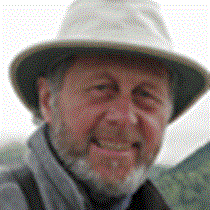Restoring cultural traditions to a nation that was forbidden by law to practice these traditions, and even forbidden to teach its own language to its children, is a painful process. But the Kwakwa'ka'wakw First Nation of Alert Bay, British Columbia will outlive that pain. These people are absolutely determined to "be there", to live proudly, to learn from their remaining elders, and to instill in their young generations the proud ceremonies of the past. Guests of Sea Bird shared in this determination today as we were invited by this island community to visit their museum of treasures - the U'Mista Centre - and to enter their magnificent Bighouse. We delighted in the children as they told stories in dance - stories that were passed down from their forefathers. The origin of the western red cedar used in this eagle house post supporting the Bighouse, and in their cedar-bark dances, was our pre-celebration destination. A walk through a forest of 1000-year-old gnarled cedars and stately hemlocks, and amid tall salal and red huckleberries, opened our eyes to the magnitude of the temperate rainforest of this coast.
Our day began and ended amid another extremely important symbol of these aboriginal peoples - the killer whale. In a misty fog, excitingly close contact with perhaps 30 or more of these huge "dolphins", subgroups of the resident pods of northeastern Vancouver Island waters, marked a first sighting for many of us. Herding behavior was observed as the whales separated, circled and then congregated again, suddenly lunging in tight circles as they chased hapless migrant salmon or herring. Speeding among the whales and also presumably enjoying a feast were diminutive Dall's porpoises, apparently knowledgeable of the fish-eating habits of their huge cousins and oblivious to the term "killer whale".




